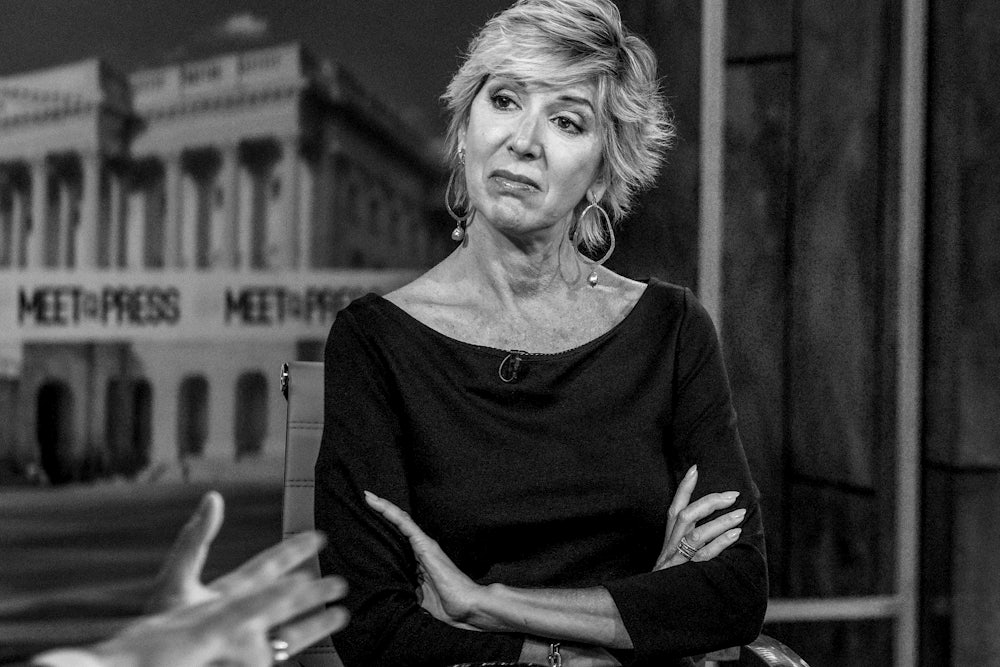In September, as the presidential campaign entered its final weeks, a woman named Danielle Pletka published an op-ed in The Washington Post entitled “I never considered voting for Trump in 2016. I may be forced to vote for him this year.” In it, she explained that while she abhors Donald Trump’s “chronic mendacity and general crudeness,” what she fears even more than his “erratic, personality-driven decision-making” is the “leftward lurch of the Democratic Party.” Joe Biden would “run a teleprompter presidency with the words drafted by his party’s hard-left ideologues.” “With Donald Trump,” Pletka sighed, “I know what I am getting.”
We’ve seen this movie before: A wayward conservative, disgusted by Trump, implies that his or her vote is up for grabs in the coming election—but only if the Democrats swing right to accommodate her. Except Pletka is no flyover-state swing voter: She’s an operative at the right-wing American Enterprise Institute and a former employee of the segregationist senator Jesse Helms. As she herself says, her greatest fear is “an entirely Democratic-run Washington.”
Pletka is not the first dyed-in-the-wool conservative to cast herself as a tribune of moderate America. Two years ago, the New York Post’s Salena Zito published a series of articles about swing voters in the Midwest who were reportedly as turned off as Pletka by the Democrats’ fixation on social justice. A few hours’ sleuthing by other journalists revealed that these supposed swing voters included a number of longtime Republican operatives, donors, and committee members.
The fact that Zito’s stories appeared in print was telling: The political media is irresistibly drawn to “authentic” voices from the heartland, to stories of Average Joes whom the Democrats may have left behind. But it is puzzling that journalists would give any credence to the allegation that Biden is a puppet of “left-wing ideologues.” In the 30 years since Newt Gingrich inaugurated the era of party discipline, the Republican Party has shown itself to be far more the prisoner of its most extreme leaders than the Democratic Party has ever been. In September, Republicans quickly lined up behind Mitch McConnell’s push to fill Ruth Bader Ginsburg’s Supreme Court seat, trusting that voters disgusted by Trump would hold their nose and pull the lever, just as they did in 2016. The GOP, in other words, works like Pletka thinks the Democratic Party does: Some of its moderate members may pretend to distance themselves from the party’s most extreme leaders, but in the end they fall in line—even Pletka.
